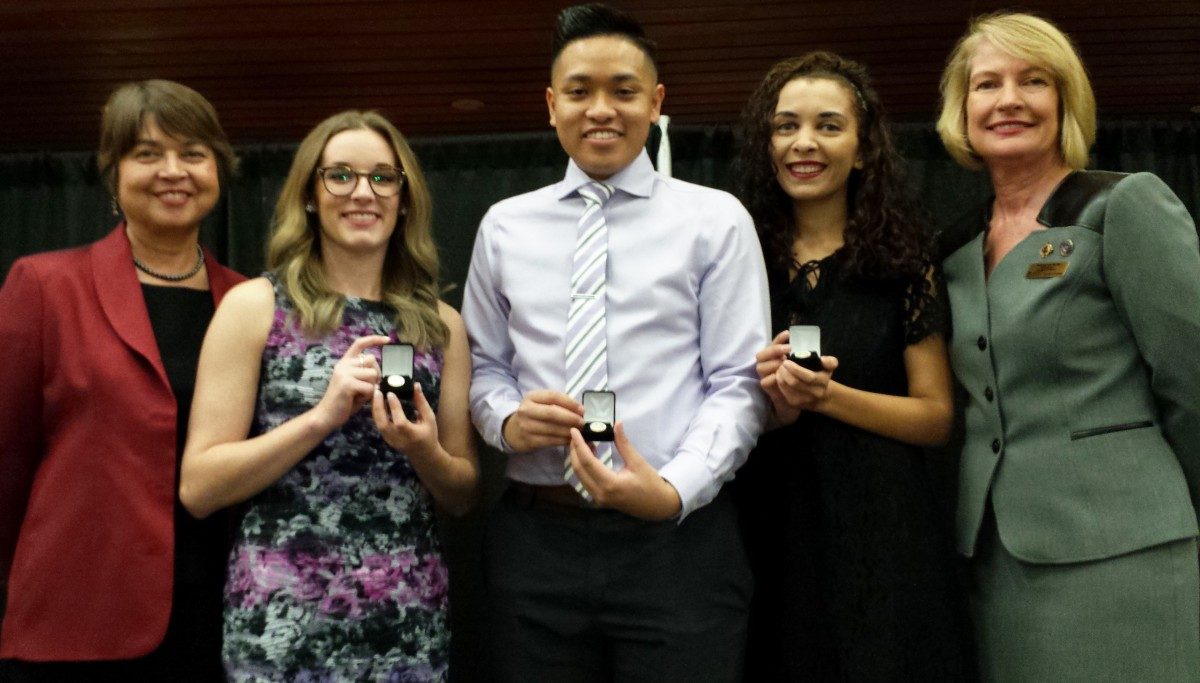
Dean Beverly O'Connell (l) and Terri Ashcroft, Associate Dean, Undegraduate Programs (r) presented pins to nursing grads.
Health minister calls on nursing grads to put caring first
There’s a difference between care and caring, Manitoba’s health minister noted in his address to graduating nurses at the Pinning Ceremony for the College of Nursing on Oct. 20.
Kelvin Goertzen, minister of health, seniors and active living, said his office receives “about a foot and a half” of mail every day. Most of the letters are from Manitobans discussing their experiences with the health-care system, and most emphasize whether or not they were treated in a caring and respectful manner.
That won’t change, the minister said, no matter how sophisticated the delivery of care becomes.
“It doesn’t matter how technology is going to revolutionize how you provide care,” Goertzen said. “You’re always going to be treating individuals who want to be treated in a caring way. . . . I hope you’ll always remember that it’s a very human endeavour.”
About 140 Bachelor of Nursing grads were to receive their degrees at Fall Convocation on the afternoon of Oct. 20. More than 100 took part in the morning Pinning Ceremony, which officially welcomed them into the nursing profession.
The ceremony is organized by the U of M Nursing Students’ Association. Participants recite the U of M Bachelor of Nursing Pledge, which was inspired by the 1893 Florence Nightingale Pledge and has been adapted by the university.
By reciting the pledge, nurses vow to practise with integrity, uphold the standards of the profession and dedicate themselves to confidentiality, collaboration and quality patient care.
Following the pledge, each newly minted nurse receives a pin from the College of Nursing, Rady Faculty of Health Sciences.
“As you reflect on this achievement, you should view it as the start of a professional journey, rather than the completion of one,” Beverly O’Connell, dean of the College of Nursing, told the graduates. “As a university graduate, you must continue to think critically. . . . Take nursing care forward and never become professionally complacent.”
O’Connell echoed Goertzen in highlighting nurses’ caring attitudes on the front lines.
“Our work puts us at the forefront of family experience, whether it is celebrating births and babies, fostering health promotion or caring for folk in illness and death. All require sensitivity, compassion and diverse expertise.”
The impact of nursing can be calculated in terms such as reduced mortality rates, the dean said, but nurses also have “less measurable” effects on people’s well-being and comfort. Providing support and reassurance to patients and families are “little things that count for a lot,” O’Connell told the graduates.






